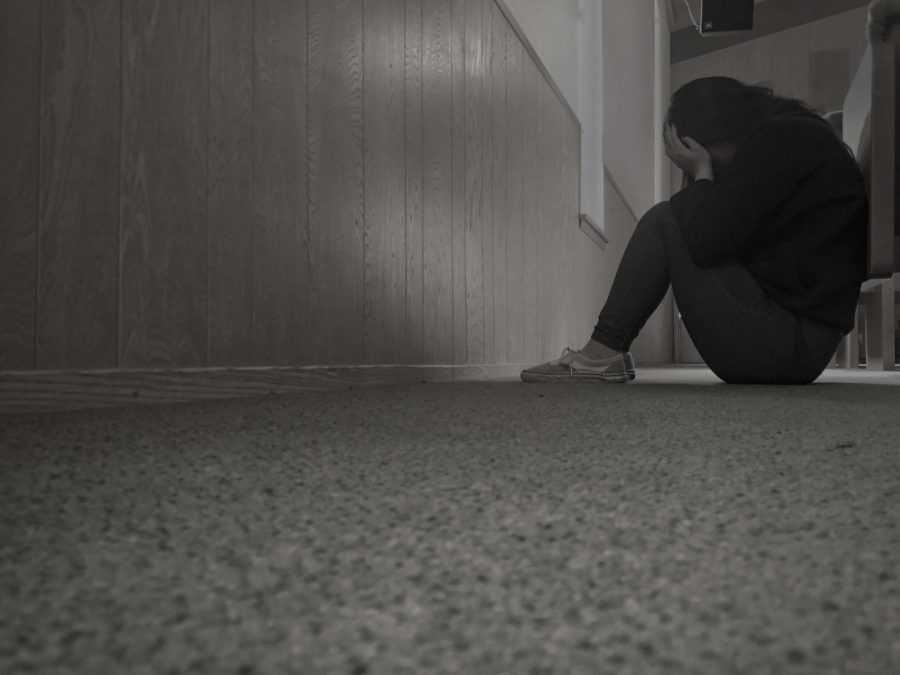One out of every eight adolescents suffers from depression.
Depression is the most common mental disorder in the United States, according to Anxiety and Depression Association of America.
Whether it’s just a feeling or clinical disorder, everyone experiences some kind of sadness in their lifetime.
In order to deal with any sense of hopelessness, some tend to hide behind a mask. It could be a variety of superficial things that distract one from and covers up their depression.
Rose Jackson*, a victim of depression in her teenage years, said, “People hide their feelings because they are afraid of judgment from others. They feel as if no one understands their feelings and they feel alone. Some depressed people are not sure if they want to share their personal struggles because they don’t know if they can trust a friend or family member, and some are in denial of their depression.”
Many teens find a way to internalize depression and hide it from others because they are ashamed of it. However, those who may be depressed are evidently not alone and should not feel the need to cover up their feelings in front of others.
Some people who struggle with depression have a tendency to wish that their lives would be far better if only they were richer, prettier, and more popular, but ironically, even some of the most praised and celebrated celebrities have gone through or are going through depression and feelings of deep helplessness and sorrow.
Robin Williams, an Oscar-winning actor, died at age 63 in 2014. He was suspected to have committed suicide due to depression. Even though Williams was a highly successful actor and comedian, he himself struggled with depression. He was like any other ordinary person who was suffering from serious bouts of unhappiness and hidden sadness.
Although the loss of Robin Williams was heartbreaking and unfortunate, sadly, he has not been the only celebrity who suffered from this disorder. Kurt Cobain, Hunter S. Thompson, Alexander McQueen, Ernest Hemingway, and David Foster Wallace, are just a few examples of famous people who have also committed suicide due to depressive tendencies.
However, depression is not an automatic death penalty.
People have different means of dealing with these negative emotions.
Senior Pastor at Fellowship Bible Church Steve Wong described how people have the mentality that their depression will be resolved with experiencing the complete opposite: happiness, but that happiness is merely temporary.
Wong said that many depressed people might turn to distractions such as shopping, drugs, sex, alcohol, thrills, sleeping, gambling, self-harm, or eating in an effort to suppress or alleviate their feelings.
“The cure for depression is not happiness or elation or fun, people use that as a cover up…the problem is still there, and it’s not being addressed,” Wong said.
Carlmont High School’s crisis counselor and SOS Coordinator Shelley Bustamante said, “We live in a society that doesn’t want to feel pain, but when they didn’t deal with their pain, they didn’t face their pain, their fears, and they just mask it, it’s still there. It comes back to them.”
Depression comes in many different forms and can affect many different kinds of people. Counselors and therapists see people of all different ages, backgrounds, and ethnicities going through the same sense of self-doubt.
“Any person on this campus, student or staff, given the right amount of stressors and the combination of stressors, can plummet into a depressive state. That would be 2,300 people at some point,” said Bustamante.
Anyone can go through this emotional low in their life.
Jackson was only 13 years old when she began to experience this sense of depression.
“I fell into a depression from a molestation experience and family members criticizing me for my weight and looks. I was a growing teenager going through physical changes and I wasn’t encouraged to love my body and self. I was told to lose weight by my aunts and uncles. I was only 95 pounds, and I took it hard and slowly stopped eating. I was 83 pounds and starving,” said Jackson.
Some people who are post-depression are able to learn from their experiences.
“I’ve learned to be mindful of what I am going through, knowing and accepting that all emotions are temporary. Feelings come and go every second, minute, and hour but we can’t retain them for long even if we wanted to. I am still a victim of depressed feelings, which I don’t allow to stay too long because I know it’s just a temporary feeling,” said Jackson.
Jackson’s story is just one out of many people who can identify with this kind of hurt and depression. Whether someone has experienced a traumatic past or not, they can have hope in knowing that these feelings are not permanent.
However, the extent to which a person may be ashamed of having depression, it is not a fault, and it has nothing to do with how “good” a person is.
“Depression is not something wrong with a person, it’s a cry for help,” said Wong.
Depression comes differently to every individual, and so there is never an exact or uniform way to deal with it.
Licensed Marriage and Family Therapist Jennifer Tsai said, “Mental health is still very misunderstood and taboo to talk about. There is still so much to understand about the complexity of the brain and how we think.”
Although a cure for depression is not definitive, Bustamante said, “Healing involves being willing to hurt more now in order to someday hurt less. It is the process of going through—not over, around, or under—your pain.”
*To preserve the anonymity of this person, their name has been changed.


